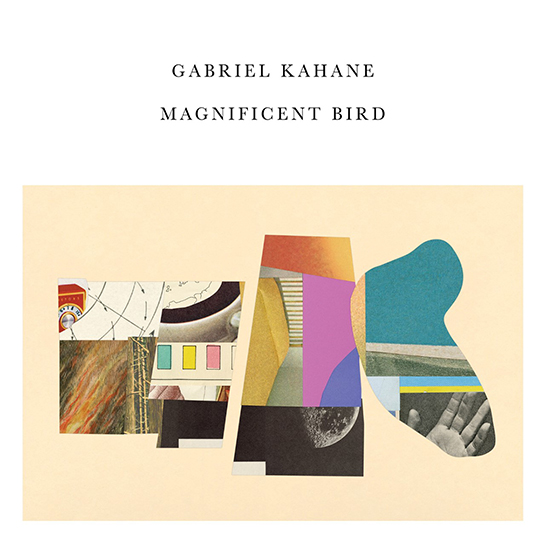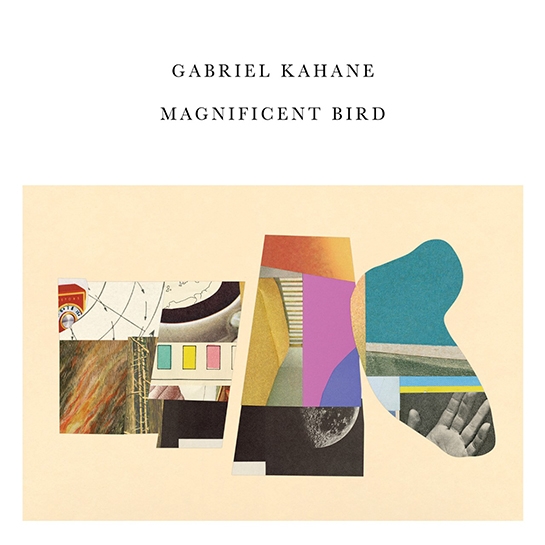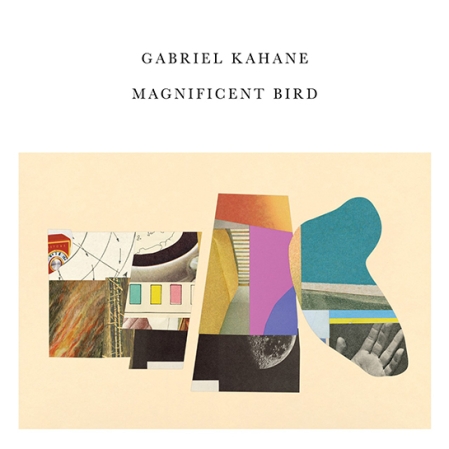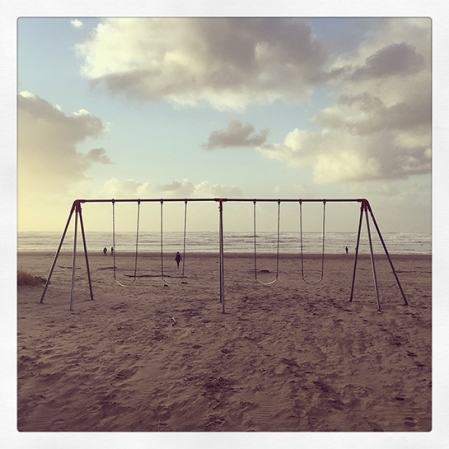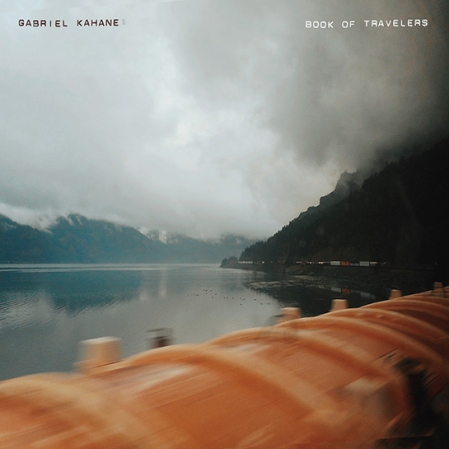Composer/singer/songwriter Gabriel Kahane's Magnificent Bird, chronicles the final month of a year spent off the internet. Kahane explores quiet, domestic concerns, coupled with losses personal and collective, against the backdrop of a nation and planet in crisis. "Deft, prose poem-like songs: an illuminating humanity is absolutely key," says Mojo. "A most eloquent exploration of our current lot." The San Francisco Chronicle calls it "a gorgeous, intimate collection ... glistening and magical." Guest musicians include Sam Amidon, Punch Brothers' Chris Thile and Paul Kowert, Caroline Shaw, and Mountain Man's Amelia Meath.
Composer/singer/songwriter Gabriel Kahane released Magnificent Bird on March 25, 2022. The album, his fifth solo LP and second for Nonesuch Records, chronicles the final month of a year spent off the internet. In his most personal album since 2011's Where are the Arms, Kahane revels in the tension between quiet, domestic concerns, and the roiling chaos of a nation and planet in crisis.
In October 2020, the final month of his tech sabbatical, Kahane set out to write a song every day. “I wanted to create an aural brain scan at the end of this experiment,” he explains, “and to give myself permission to write about small things, rather than trying to distill the enormity of the moment into grand statements.”
In “Chemex,” a cathedral built out of synthesizers and a one-man choir, he announces his theme: the marriage of the mundane to the increasingly quotidian terror that accompanies life in a wounded country, and, moreover, on a planet in the throes of catastrophic climate change. As songs like “We Are the Saints” and “Hot Pink Raingear” demonstrate, Magnificent Bird is suffused with impressions of the physical world. But the narrative is just as often internal, a landscape of the mind. Here is Kahane analyzing apocalyptic dreams (“Die Traumdeutung”), now confronting professional jealousy (“Magnificent Bird”), and there, interrogating—and yet indulging!—nostalgia (the elegiac anthem “To Be American,” with an all-star backing band featuring Andrew Bird, Caroline Shaw, Chris Thile, Punch Brothers bassist Paul Kowert, and percussionist Ted Poor). And in “Linda and Stuart,” sung in close harmony with Amelia Meath (of Sylvan Esso and label mates Mountain Man), a portrait of an elderly couple in housebound isolation reveals itself to be the narrator’s anguished, retroactive farewell to New York.
“My internet hiatus grew out of a belief that at root, our digital devices reinforce the fiction that convenience and efficiency have intrinsic value. That has implications with respect to climate crisis, to inequality, to our (in)ability to see ourselves in each other, to build the kinds of coalitions necessary to make a more just world. I wanted to leave it all behind not as a further expression of techno-pessimism, but rather in search of a positive alternative.
“In that sense, this record relates to Book of Travelers,” he muses, referring to his 2018 Nonesuch debut. Hailed as “a stunning portrait of a singular moment in America” by Rolling Stone, the album chronicled an 8,980-mile, off-the-grid railway journey in the aftermath of the 2016 presidential election. “I wanted unmediated interaction with strangers, so I took that trip without my phone. Somewhere in New Mexico, I remember thinking, ‘Wow, this is really transformative. I should do this for more than thirteen days.’
The dozen collaborators who appear on Magnificent Bird—a list that also includes composer/performers Nathalie Joachim and Pekka Kuusisto; the celebrated clarinetist Anthony McGill; avant-folk stalwarts Sam Amidon and Holcombe Waller; longtime colleagues Gabriel Cabezas, Casey Foubert, Alex Sopp, and Elizabeth Ziman; and mix engineer Joseph Lorge—reflect a central paradox: a trunk of songs written in self-imposed isolation was brought to life through the very technology Kahane had shunned. “Everyone who plays on the album is someone I love as a person as much as I do as a musician. The truth is, after all that isolation, I just wanted an excuse to get in touch with my friends. It was almost secondary to get them to play on this record, which is, as much as any I’ve made, a pure expression of community.”
Gabriel Kahane lives in Portland, Oregon, where he serves as Creative Chair for the Oregon Symphony, for whom he composed, in 2018, emergency shelter intake form, an exploration of inequality through the lens of housing issues. This season, his piano concerto, Heirloom, was premiered by his father, Jeffrey Kahane, with the Kansas City Symphony; it will be heard again in Portland in March. Upcoming projects include an orchestral song cycle—for the Los Angeles Philharmonic and Cincinnati Symphony—further exploring his internet hiatus, surveillance capitalism, and the cascading consequences of our digital regime. The recipient of a 2021 Charles Ives Fellowship from the American Academy of Arts and Letters, Gabriel has collaborated with a wide array of artists ranging from Sufjan Stevens, Phoebe Bridgers, Blake Mills, and Paul Simon, to Brooklyn Rider, yMusic, and John Adams. He is a graduate of Brown University.
PRODUCTION CREDITS
Produced by Gabriel Kahane
Recorded in 2021 in Portland, OR, by Gabriel Kahane at Café 808 Studios, with additional recording in London, Helsinki, Ojai, Western Massachusetts, Oakland, Seattle, rural Illinois, Brooklyn, Chicago, somewhere outside of Chapel Hill, and the island Manhattan.
Engineers: Gabriel Kahane, Casey Foubert, Sam Amidon, Ted Poor, Alex Sopp, Tatu Ollikainen, Paul Kowert, Andrew Bird, Caroline Shaw, Chris Thile, Amelia Meath, Nathalie Joachim, Holcombe Waller, Gabriel Cabezas, Charles Mueller, Elizabeth Ziman, Joseph Lorge
Mixed by Joseph Lorge at Sound City Studios in Los Angeles, California.
Mastered by Robert C. Ludwig at Gateway Mastering in Portland, Maine.
Art and Design by John Gall
MUSICIANS
Gabriel Kahane, vocals (1-10), piano (1-5, 8-10), electric guitars (1, 2, 6, 10), acoustic guitars (2), synthesizers (2, 3, 5, 7, 8, 10), drum programming (7, 8, 10), electric bass (7, 8), bass (10), banjo (10)
Joseph Lorge, synthesizer (1), drum programming (7), electric guitar (10)
Sam Amidon, background vocals (2, 8)
Casey Foubert, drums (2), electric guitars (2, 10), electric bass (2), vibraphone (2)
Ted Poor, drums (2, 6), percussion (4), piano (6)
Alexandra Sopp, flute (2, 7, 8), whistles (2), piccolo (8)
Paul Kowert, double-bass (3, 4)
Pekka Kuusisto, violin (3)
Andrew Bird, violin (4)
Caroline Shaw, background vocals (4), violin (4)
Chris Thile, mandolin (4)
Ethan Gruska, sound design (6)
Chris Morrissey, electric-bass (6)
Amelia Meath, background vocals (6)
Nathalie Joachim, flutes (7)
Holcombe Waller, background vocals (7, 8)
Gabriel Cabezas, cellos (8)
Pharaoh Fawcett, background vocals (8)
Anthony McGill, clarinet (9)
Elizabeth Ziman, background vocals (10)
